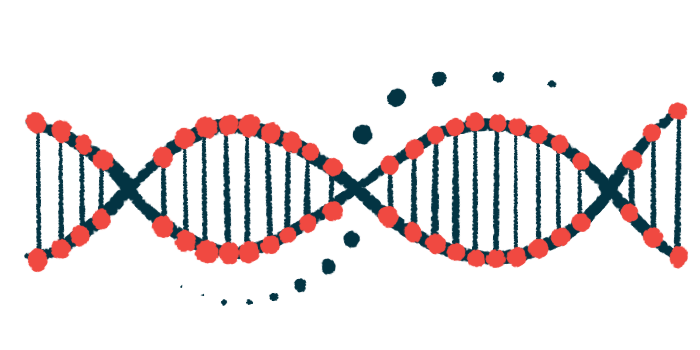New ALS gene mutation found in families in Spain: Study
10 ALS patients from 7 families seen with mutation
Written by |

A new genetic mutation that may cause amyotrophic lateral sclerosis (ALS) has been discovered in families living in La Rioja, a region in Spain, according to a study.
The gene mutation, found in 10 ALS patients from seven different families, affected the ARPP21 gene, which encodes a protein that binds RNA, the intermediate molecule that is produced when genes are read to make proteins.
Because a number of genes linked to ALS have been also found to affect RNA metabolism, the findings highlight the central role of RNA metabolism in ALS, the researchers said.
The study, “Identification of a pathogenic mutation in ARPP21 in patients with amyotrophic lateral sclerosis,” was published in the Journal of Neurology, Neurosurgery, and Psychiatry.
The researchers said the mutation may help to explain several other cases of familial ALS with no known disease-causing mutations. It may also accelerate research into novel treatment targets.
ALS gene mutation may lead to precision diagnosis, new therapies
“This mutation will not only help diagnose ALS more precisely, but also opens the door to researching new personalized therapies and studying the function of this protein in the disease,” Oriol Dols-Icardo, PhD, the study’s first author and a researcher at the Sant Pau Research Institute, said in a university news release.
The majority of ALS cases are considered sporadic, with no known cases of ALS in the patient’s family, but about 5%-10% of patients have a family history. So far, more than 40 genes have been associated with ALS, and many code for proteins that bind RNA, including TDP-43, FUS, and TIA1, among others.
A research team led by neurologist Ricard Rojas-García, MD, PhD, noticed an unusually high number of ALS cases in the southeast region of La Rioja, an autonomous community in northern Spain.
“We noticed that there were many patients from this area, from very close towns, which attracted a lot of attention,” said Rojas-García, a researcher in the neuromuscular diseases group at the Sant Pau Research Institute.
The team collected population data and calculated the expected number of cases in the area. With an average population of 43,433 between 2009 and 2022, the researchers were expecting to see 0.44 to 0.77 ALS cases per year in the area, or about five to 10 diagnoses during the study period. In turn, the expected number for familial ALS was 0.02 to 0.08 cases per year, or one new case every 12.5 years to 50 years.
However, 15 patients from the area received an ALS diagnosis between 2009 and 2022, and seven of them (46.6%) had a family history — much higher than expected.
Researchers performed genetic analysis on 12 ALS patients from the area, five of whom had familial ALS. In all but one of the familial cases, no genetic mutations known to cause ALS were identified.
The analysis revealed a previously unreported mutation in the ARPP21 gene, called Pro529Leu, in four unrelated ALS patients (three with familial disease) from four different families. This gene carries instructions for cAMP-regulated phosphoprotein 21, a protein widely found in the human brain and known to bind RNA.
When the analysis was expanded to include 22 additional cases from the surrounding area, eight of whom had familial ALS, six individuals carried the ARPP21 mutation, resulting in a total of 10 mutation carriers from seven unrelated families. The ARPP21 mutation was not found in a group of more than 2,000 people from Spain who didn’t have ALS.
Among the 10 individuals, five were men, the mean age at ALS onset was 59.5 years, and the mean disease duration was 16 months. All 10 patients showed a classic disease presentation, and three were still living at the time of the study.
While cognitive impairment was present in only one patient, another patient who did not have a family ALS history had a younger sibling with early-onset dementia. Two other families also had family histories of early-onset dementia.
The results “support the causative role of a mutation [Pro529Leu] in ARPP21 in ALS,” as well as “the role of ARPP21 as an independent, novel ALS-causing gene, adding to the complex genetic architecture of the disease and expanding the landscape of RNA-binding proteins altered in ALS,” the researchers wrote.
“This opens the door for other research teams worldwide to review their databases and patients to see if this mutation is also present elsewhere,” the team said.






